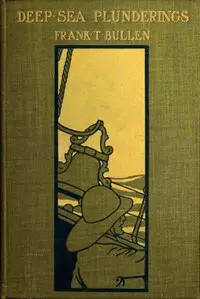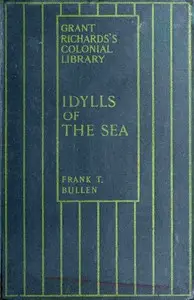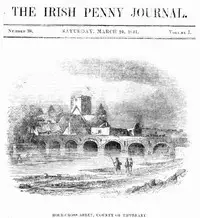"Deep-Sea Plunderings" by Frank Thomas Bullen is a collection of maritime adventures written in the late 19th century. The book explores the thrilling experiences of seafarers, particularly focusing on the world of whaling, ship life, and human encounters at sea, revealing the challenges and dangers faced by sailors in their pursuit of fortune. The opening of the novel introduces readers to the clipper ship Mirzapore, sailing toward Melbourne. As the elegant vessel glides through the sea, the chief officer, Mr. Curzon, disdainfully comments on an old whaling ship they encounter, showcasing the contrast between the gracefully designed Mirzapore and the antiquated vessel. As curiosity piques among the ship's passengers, they observe a whaling operation taking place, witnessing the perilous chase and harpooning of whales. The scene is charged with action and emotion as the crew members of the whaling ship demonstrate their skill, courage, and the brutal realities of their trade. The setting captures the essence of life at sea while foreshadowing the intricate human dramas and connections that will unfold throughout the stories in this collection. (This is an automatically generated summary.)

Deep-Sea Plunderings
By Frank Thomas Bullen
"Deep-Sea Plunderings" by Frank Thomas Bullen is a collection of maritime adventures written in the late 19th century. The book explores the thrilling...
Frank Thomas Bullen, British novelist, was born of poor parents in Paddington, London, on 5 April 1857, and was educated for a few years at a dame school and Westbourne school, Paddington. At the age of 9, his aunt, who was his guardian, died. He then left school and took up work as an errand boy. In 1869 he went to sea and travelled to all parts of the world in various capacities including that of second mate of the Harbinger and chief mate of the Day Dawn, under Capt. John R. H. Ward jun in 1879 when she was dismasted and disabled. Having spent 15 years of his life at sea, since the tender age of 12, he would later describe the hardships of his early life thus: I have been beaten by a negro lad as big again as myself, and only a Frenchman interfered on my behalf. Those were the days when boys in Geordie colliers or East Coast fishing smacks were often beaten to insanity and jumped overboard, or were done to death in truly savage fashion, and all that was necessary to account for their non returning was a line in the log to the effect that they had been washed or had fallen overboard. A parallel may be drawn with Joseph Conrad's career at sea aboard Torrens 1891–1893. He was a clerk in the Meteorological Office from 1883 to 1889. His reputation was made over the publication of The Cruise of the "Cachalot" (1898); and he also wrote, amongst other books, Idylls of the Sea (1899); Sea Wrack (1903); The Call of the Deep (1907) and A Compleat Sea Cook (1912), besides many articles and essays. He lectured extensively and was highly critical of Australasia's lack of defences against what he saw as imminent naval threats from Germany and Japan. He died at Madeira on 1 March 1915.












